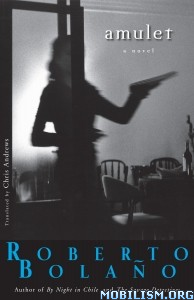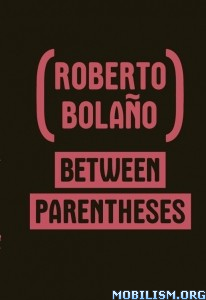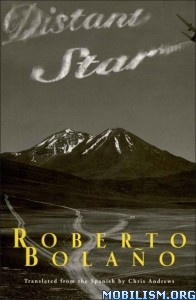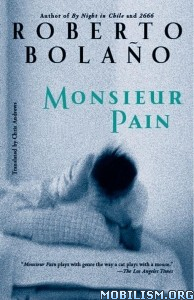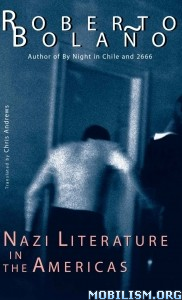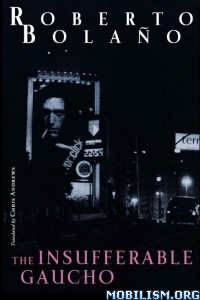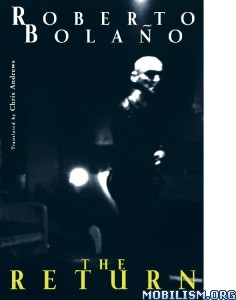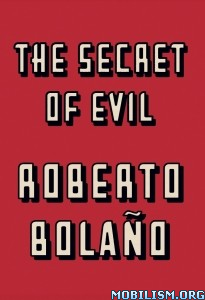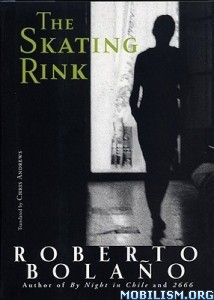9 Books by Roberto Bolaño
Requirements: ePUB or MOBI Reader | 12 MB
Overview: Roberto Bolaño (1953-2003) was born in Santiago, Chile. At fifteen, he moved with his family to Mexico and there became a Trotskyite and a journalist. In 1973, he returned to Chile and enlisted in Allende’s party but was imprisoned for a week after the military coup. He then went to El Salvador, where he knew the poet Roque Dalton, then to Mexico, and finally Spain where he worked as a dishwasher, waiter, night watchman, garbageman, longshoreman, and salesman until the 80’s when he could make enough money to support himself by writing, and publishing. In 1999 he won the extremely prestigious Herralde & el Rómulo Gallego Award, considered the Latin American Nobel Prize (García Márquez and Vargas Llosa have been other winners.) He died of liver failure in Barcelona on July 15, 2003.
Genre: Literary Fiction, Essays
Amulet
Amulet is a monologue, like Bolano’s acclaimed debut in English, By Night in Chile. The speaker is Auxilio Lacouture, a Uruguayan woman who moved to Mexico in the 1960s, becoming the "Mother of Mexican Poetry," hanging out with the young poets in the cafes and bars of the University. She’s tall, thin,brand blonde, and her favorite young poet in the 1970s is none other than Arturo Belano (Bolano’s fictional stand-in throughout his books). As well as her young poets, Auxilio recalls three remarkable women; the melancholic young philosopher Elena, the exiled Catalan painter Remedios Varo, and Lilian Serpas, a poet who once slept with Che Guevara. And in the course of her imaginary visit to the house of Remedios Varo, Auxilio sees an uncanny landscape, a kind of chasm. This chasm reappears in a vision at the end of the book; an army of children is marching toward it, singing as they go. The children are the idealistic young Latin Americans who came to maturity in the ’70s, and the last words of the novel are; "And that song is our amulet."
Between Parentheses
Between Parentheses collects most of the newspaper columns and articles Bolaño wrote during the last five years of his life, as well as the texts of some of his speeches and talks and a few scattered prologues. “Taken together,” as the editor Ignacio Echevarría remarks in his introduction, they provide “a personal cartography of the writer: the closest thing, among all his writings, to a kind of fragmented ‘autobiography.’” Bolaño’s career as a nonfiction writer began in 1998, the year he became famous overnight for The Savage Detectives; he was suddenly in demand for articles and speeches, and he took to this new vocation like a duck to water. Cantankerous, irreverent, and insufferably opinionated, Bolaño also could be tender (about his family and favorite places) as well as a fierce advocate for his heroes (Borges, Cortázar, Parra) and his favorite contemporaries, whose books he read assiduously and promoted generously. A demanding critic, he declares that in his “ideal literary kitchen there lives a warrior”: he argues for courage, and especially for bravery in the face of failure. Between Parentheses fully lives up to his own demands: “I ask for creativity from literary criticism, creativity at all levels.”
Distant Star
The star of Roberto Bolaño’s hair-raising novel Distant Star is Alberto Ruiz-Tagle, an air force pilot who exploits the 1973 coup to launch his own version of the New Chilean Poetry, a multimedia enterprise involving sky-writing, poetry, torture, and photo exhibitions. For our unnamed narrator, who first encounters this "star" in a college poetry workshop, Ruiz-Tagle becomes the silent hand behind every evil act in the darkness of Pinochet’s regime. The narrator, unable to stop himself, tries to track Ruiz-Tagle down, and sees signs of his activity over and over again. A corrosive, mocking humor sparkles within Bolaño’s darkest visions of Chile under Pinochet.
Monsieur Pain
Paris, 1938. The Peruvian poet César Vallejo is in the hospital, afflicted with an undiagnosed illness, and unable to stop hiccuping. His wife calls on an acquaintance of her friend Madame Reynaud: the Mesmerist Pierre Pain. Pain, a timid bachelor, is in love with the widow Reynaud, and agrees to help. But two mysterious Spanish men follow Pain and bribe him not to treat Vallejo, and Pain takes the money. Ravaged by guilt and anxiety, however, he does not intend to abandon his new patient, but then Pain’s access to the hospital is barred and Madame Reynaud leaves Paris…. Another practioner of the occult sciences enters the story (working for Franco, using his Mesmeric expertise to interrogate prisoners)—as do Mme. Curie, tarot cards, an assassination, and nightmares. Meanwhile, Monsieur Pain, haunted and guilty, wanders the crepuscular, rainy streets of Paris…
Nazi Literature in the Americas
Nazi Literature in the Americas was the first of Roberto Bolaño’s books to reach a wide public. When it was published in 1996, critics in Spain were quick to recognize the arrival of an important new talent. The book presents itself as a biographical dictionary of American writers who flirted with or espoused extreme right-wing ideologies in the twentieth and twenty-first centuries. It is a tour de force of black humor and imaginary erudition.
The Insufferable Gaucho
The Insufferable Gaucho contains tales bent on returning to haunt you. Unpredictable and daring, highly controlled yet somehow haywire, a Bolaño story might concern an elusive plagiarist or an elderly lawyer giving up city life for an improbable return to the family estate, now gone to wrack and ruin.
The Return
Wide-ranging, suggestive, and daring, a Bolaño story might concern the unexpected fate of a beautiful ex-girlfriend or a dream of meeting Enrique Lihn: his plots go anywhere and everywhere and they always surprise. Consider the title piece: a young party animal collapses in a Parisian disco and dies on the dance floor; just as his soul is departing his body, it realizes strange doings are afoot—and what follows next defies the imagination (except Bolaño’s own).
The Secret of Evil
A North American journalist in Paris is woken at 4 a.m. by a mysterious caller with urgent information. Daniela de Montecristo (familiar to readers of Nazi Literature in the Americas and 2666) recounts the loss of her virginity. Arturo Belano returns to Mexico City and meets the last disciples of Ulises Lima, who play in a band called The Asshole of Morelos. Belano’s son Gerónimo disappears in Berlin during the Days of Chaos in 2005. Memories of a return to the native land; Argentine writers as gangsters; zombie schlock as allegory… and much more.
The Skating Rink
Set in the seaside town of Z, on the Costa Brava, north of Barcelona, The Skating Rink oscillates between two poles: a camp ground and a ruined mansion, the Palacio Benvingut. The story, told by three male narrators, revolves around a beautiful figure skating champion, Nuria Martí. When she is suddenly dropped from the Olympic team, a pompous but besotted civil servant secretly builds a skating rink in the ruined Palacio Benvingut, using public funds. But Nuria has affairs, provokes jealousy, and the skating rink becomes a crime scene. A mysterious pair of women, an ex-opera singer and a taciturn girl often armed with a knife, turn up as well.
Download Instructions:
http://gestyy.com/wLsDsn
http://gestyy.com/wLsDsW
